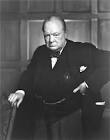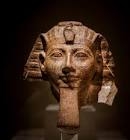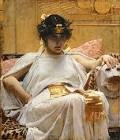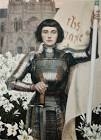Alexander The Great – Conqueror’S Legacy, Life, Family, Influence
Alexander the Great, king of Macedonia, is one of the most renowned and influential figures in ancient history. Born in 356 BC in Pella, the ancient capital of Macedonia, Alexander inherited the throne from his father, King Philip II, at the age of 20. He spent his short life conquering vast regions and creating an empire that stretched from Greece to Egypt and as far east as the Indus River. His military tactics and strategies are still studied today, and his legacy as a cultural diffuser persists through the Hellenistic period that followed his death.

Personal Information
| Full Name | Alexander the Great |
|---|---|
| Nick Name / Stage Name | Not Applicable |
| Born | July 356 BC, Pella, Macedonia |
| Died | June 323 BC, Babylon, 32 years old |
| Age | 32 |
| Gender | Male |
| Zodiac Sign | Not Applicable |
| Hometown | Pella, Macedonia |
| Nationality | Macedonian |
| Years Active | 336–323 BC |
| Marital Status | Married |
| Husband/Wife | Roxana |
| Children | Alexander IV of Macedon |
| Political Affiliation | Kingdom of Macedon, Monarchy |
| Alma Mater | Aristotle’s Lyceum |
| Profession | King, Military Leader |
| Net Worth (approx.) | Not Applicable |
| Debut | Ascension to the Throne of Macedon (336 BC) |
| School | Aristotle’s Lyceum |
| College | Not Applicable |
| Education Qualification / Degree | Tutored by Aristotle |
| Hobbies/Habits/Interests | Military Campaigns, Exploration, Academic Pursuits |
| Favorite Clothing Brands | Not Applicable (Ancient Era) |
| Favorite Gadgets | Not Applicable (Ancient Era) |
| Food Habit | Simple Macedonian Diet |
| Awards | Not Applicable |
| Notable Works | Creation of the Macedonian Empire, Spread of Greek Culture |
| Website | Not Applicable |
Early Career
Alexander the Great’s early career was shaped by his father, King Philip II, who was an accomplished military leader himself. Alexander received a royal education suitable for a heir to the throne, studying under the renowned philosopher Aristotle. His father’s military campaigns provided Alexander with invaluable exposure to warfare and statecraft. Alexander’s first job, so to speak, was his regency in Macedonia while his father was away on military campaigns. During this time, he dealt with internal rebellions and external threats, honing his leadership skills.
Education
Alexander the Great’s education was overseen by Aristotle, one of the greatest philosophers and intellectuals of all time. During his time at Aristotle’s Lyceum, Alexander received education in philosophy, science, medicine, and literature. This diverse education had a profound influence on Alexander, shaping his intellectual curiosity and love for learning. Despite his short time at the Lyceum, Alexander maintained a lifelong interest in intellectual pursuits and surrounded himself with scholars and thinkers during his military campaigns.
Career
Alexander the Great’s career is synonymous with military conquest. Upon ascending to the throne of Macedon in 336 BC, Alexander wasted no time in launching his first military campaign against the Persian Empire, a campaign that would define much of his subsequent career. Despite being significantly outnumbered, Alexander won a series of stunning victories against the Persians, culminating in the conquest of the Achaemenid Empire in 331 BC.
His military journey continued through Asia Minor, Egypt, Mesopotamia, and Central Asia, often facing much larger Persian armies. His ability to inspire his troops, coupled with innovative military strategies, led to repeated successes on the battlefield. By the time of his death in 323 BC, Alexander had created one of the largest empires in history, stretching across three continents.
Contributions and Impact
Alexander the Great’s contributions are multifaceted. From a military standpoint, his conquests transformed the political landscape of the ancient world. He introduced Greek culture, language, and administration to the regions he conquered, a process known as Hellenization. This had a profound and lasting impact, laying the foundations for the Hellenistic period and the spread of Greek influence across the Near East.
In the field of cartography, Alexander’s expeditions led to significant advancements in mapping the known world. His encouragement of geographical studies paved the way for the creation of more accurate maps and the expansion of geographical knowledge in antiquity.
Awards and Honors
Given the ancient context in which Alexander the Great lived, the concept of modern awards and honors does not apply. However, innumerable accolades were bestowed upon him during his lifetime, both by his own subjects and the peoples he conquered. He was hailed as a god-king in the Persian tradition and as a liberator in Egypt.
Personal Life
Despite his larger-than-life image as a conqueror, Alexander the Great had a complex personal life. He married several times, a common practice among ancient monarchs to solidify political alliances. His most famous wife was Roxana, whom he married during his campaign in Central Asia. He also developed close friendships with many of his generals, whose loyalty and counsel were instrumental to his military successes.
Personal Traits
Alexander the Great possessed a charismatic and dynamic personality. He was known for his fearlessness in battle, inspirational leadership, and ability to think strategically in the most challenging situations. In his personal life, he was known to be charismatic and prone to acts of generosity towards his friends and soldiers. However, he could also be ruthless towards those who crossed him, as evidenced by the swift elimination of potential rivals.
His interests spanned both the intellectual and recreational spheres. He maintained a keen interest in philosophy and science, often engaging in discussions with scholars. On the other hand, he was fond of athletic competitions and hunting, common pursuits among Macedonian nobility.
Height, Weight, Body Measurements
As with many aspects of his life, Alexander the Great’s physical appearance and body measurements have been the subject of speculation and myth. Descriptions from ancient sources paint him as of medium height with a well-proportioned and muscular build. His exact height, weight, and body measurements remain unknown, and the various ancient depictions of him should be viewed through a lens of both historical and cultural interpretation.
Scientific or Professional Career
In the field of science, Alexander the Great’s support for geographical exploration and mapping led to significant advancements in the understanding of the world’s geography during ancient times. His encounters with diverse cultures during his military campaigns also contributed to the field of ethnography and anthropology, albeit in a less structured manner than modern approaches.
Legacy
Alexander the Great’s legacy is immeasurable. As a military leader, his tactics and strategies continue to be studied in military academies around the world. The empire he created left a indelible mark on the regions he conquered, shaping their cultural, linguistic, and political landscapes for centuries to come. The Hellenistic period that emerged after his death saw the fusion of Greek culture with Eastern traditions, leaving a lasting cultural legacy.
Conclusion
In conclusion, Alexander the Great’s life is a testament to the power of ambition, leadership, and cultural diffusion. His conquests reshaped the map of the ancient world and left an indelible mark on Western civilization through the spread of Hellenistic culture. As a person of complex motivations and traits, he continues to fascinate historians and general audiences alike.
The Person Schema for Alexander the Great is as follows:
In summary, Alexander the Great’s journey from a young prince in Macedonia to the conqueror of the largest empire known to the ancient world is nothing short of legendary. His cultural influence, military acumen, and intellectual curiosity ensure that his name will continue to resonate for centuries to come.





